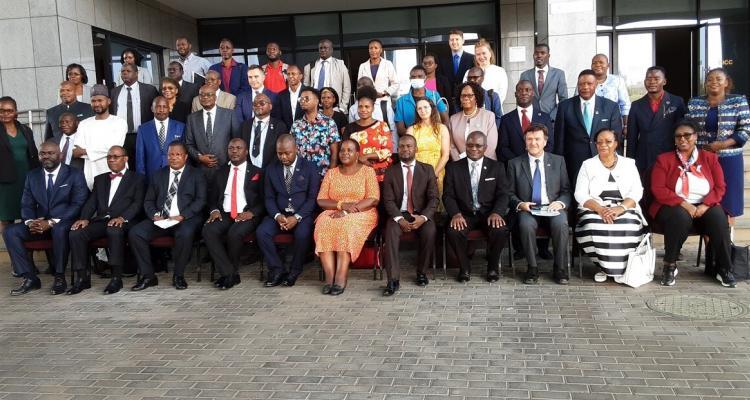
The Government of Malawi has convened a National Health Financing Dialogue to align its stakeholders on Malawi’s path towards sustainable financing of healthcare in line with both national and regional commitments.
This process has been convened together with Southern African Development Community (SADC) as the regional implementing partner of African Leadership Meeting (ALM) with support from the Global Fund to Fight AIDS, Tuberculosis and Malaria, bringing together civil society, the private sector, technical partners, and development partners to plan domestic health financing reform in Malawi.
Over the past decade, Malawi has made remarkable strides across several health indicators, particularly those related to maternal and child health. However, gaps remain there to achieve the expressed commitment of Universal Health Coverage (UHC).
Domestically, the Ministry of Health is currently in the final stages of developing the country’s Health Sector Strategic Plan III (HSSP III) and has finalized the National Health Financing Strategy, which outline Malawi’s plans to extend financial risk protection from impoverishing healthcare costs and improve both quality and access to essential healthcare services.
Hon. Khumbize Kandodo Chiponda who is the Minister of Health said that Health financing is and will continue to be a challenge for many countries in sub–Saharan Africa.
“Currently Malawi is working with an under-resourced health system that requires significant investment while rebuilding from the effects of the global COVID-19 pandemic, which has reduced our fiscal space and increased debt vulnerability,” she said.
She noted that Malawi has had a consistent population growth rate of approximately 2.9% for the past five years hence must increase total expenditure on health by more than 2.9% per annum if the country is to increase the per capita health expenditure.
She added that the National Dialogue demonstrates the Government’s commitment to prioritize investment in health in order to meet the health needs of people in Malawi.
“In the short-term we must therefore maintain public investment in health at least at the current levels and secure improved private sector engagement and investment as well as increased donor support.”
On the regional level, the Government of Malawi has reaffirmed its commitment to domestic resource mobilisation for health through the various regional declarations and most recently the African Leadership Meeting (ALM) declaration.
Dr Lamboly Kumboneki, a representative from the SADC Secretariat said: “The National Dialogue is an opportunity to both feed into and draw from the experience and knowledge of regional peers as Malawi advances in the implementation of the ALM Declaration, including the ALM’s Health Financing Tracker. African countries, working with development and private sector partners, must take decisive policy action to increase and maintain their health spending and stay on track to critical health goals like SDG3, achieving UHC and the ALM Declaration.”
Limited fiscal space has restricted the Government of Malawi’s expenditure on health to $9.9 per capita1, short of the World Health Organization’s (WHO) recommendation of $86 (USD 2012) per capita per annum needed to cover basic essential health services. Low domestic health spending has meant donors contributed an average 75% of non-household health expenditure between 2018 and 2020 with the Government of Malawi’s contribution averaging 24% over the same period. The Government of Malawi recognises that such an imbalance in spending contributions is discordant with Malawi’s path towards UHC.
Shu-Shu Tekle-Haimanot, the Senior Manager, Advocacy Health Financing at Global Fund said: “Prioritizing domestic health is one of the best investments African countries can make to secure the vision for a prosperous and peaceful Africa. The future of Africa depends on its people. To make progress on the path of sustainability requires that Member States make substantial incremental increases in domestic investment in health every year.
On his part, Maziko Matemba, the Executive Director at Health and Rights Education Programme (HREP) Malawi said: “Self-sustaining healthcare systems are at the core of Malawi’s developmental success. Our leaders have been working to improve our healthcare systems over the years. Coming together as stakeholders across different sectors to strategize on Malawi’s healthcare system in a collaborative and committed way will transform our country and deliver the health outcomes our people deserve.”
Follow us on Twitter:














